One time at school, when a boy had thrown a snake into the girls’ bathroom, girls were running everywhere, screaming at the top of their lungs. Everybody but Idgie. She had grabbed the snake and chased that boy across the field, caught him, and stuffed it down his shirt. Reverend Scroggins, the Baptist preacher, heard about the skirmish, and his sermon that Sunday had been Psalm 133:1: “How Very Good and Pleasant It Is When Kindred Live Together in Unity.”
But Idgie hadn’t heard the sermon. As usual on Sunday mornings, she was down at the Warrior River with her brother Buddy, fishing for catfish.
Idgie had always been a little wild at heart, a little restless, but after her big brother Buddy was killed in a train accident, she became even more so. She started spending time down at the River Club, running with a rough bunch, drinking and playing poker in the back room. And nobody could do a thing with her. Not until twenty-one-year-old Ruth Jamison came to Whistle Stop that summer to teach Bible school. For some reason Idgie behaved around Ruth. Her mother said that if Ruth had not come along when she did, she didn’t know what would have become of Idgie. But after Ruth left to go home to Georgia and get married, Idgie reverted back to her old ways.
But then a few years later, when Ruth left her husband and came back to live in Whistle Stop, Idgie’s father gave her five hundred dollars to start a business. So Idgie bought the cafe, and she and Ruth ran it. Momma and Poppa Threadgoode hoped it would help settle Idgie down. And it had. Most of the time. Although, being Idgie, she had still done a few things she shouldn’t have. Things that Ruth didn’t know about.
WHISTLE STOP, ALABAMA
July 8, 1939
THE YEAR RUTH’S little boy was born, he was legally adopted by the Threadgoode family. Ruth had named him Buddy Jr. after the son the Threadgoodes had lost. Momma and Poppa Threadgoode and Idgie’s brothers Cleo and Julian had all stepped in and helped raise him.
Ninny Threadgoode, a sweet lady who was married to Idgie’s brother Cleo, lived just up the street from the cafe. At present, she had a cat who had just given birth to eight kittens. Every day, ten-year-old Buddy would go over to Ninny’s house and play with them for hours. Buddy loved spending time with his Aunt Ninny, and she loved having his company.
One afternoon, when Ninny was over at the cafe visiting with Ruth, she said, “That boy of yours is a real wonder boy.”
Ruth smiled. “Why do you say that?”
Ninny laughed. “Because he’s always a wonderin’ about somethin’ or another. Why do kittens purr, or why do rabbits have long ears? This morning, when he was over at my house, he says to me, ‘Aunt Ninny, I wonder why chickens have feathers and wings, but they don’t fly off anywhere?’ So I said, ‘That’s a good question, honey. If I was a chicken and I saw Sipsey headed toward me with her five-pound skillet, I’d sure fly away if I could.’ ”
Ninny was right about Buddy. Every train that would pass by, he would wonder who was on it. Where were they going? And what were they going to do when they got there?
Of course, Idgie took all his wondering as a sign that Buddy was a genius and was going to do great things one day. And she never quit believing it.
Even after Buddy lost his arm playing over by the railroad tracks, Idgie was determined to keep him doing all the things he had done before. Today they were down at the lake fishing. Buddy stood there on the bank staring across the lake, and then said, “Hey, Aunt Idgie, should I send Peggy Hadley a valentine?”
“Well, why wouldn’t you? You like her, don’t you?”
“Yes ma’am.”
“Then sure, you should.”
After a moment he said, “Yeah…but I wonder if she likes me.”
Idgie looked at him. “Well, of course she likes you, Buddy. You? The smartest and handsomest boy in the whole world? Who wouldn’t? Besides, she told me she did.”
“She did?”
“Yep…but don’t tell her I told you.”
Buddy smiled, and then a few minutes later said, “Hey, Aunt Idgie, I wonder why catfish have whiskers.”
“I don’t know, honey, but I think there might be one biting on your line right now.”
Buddy’s eyes grew big. “Whoa!” After a struggle he pulled in his fish. “Wow…look at him, Aunt Idgie. I wonder how much he weighs.”
“Oh, I’d say at least twenty pounds.”
“Do you think so?”
“No, but let’s tell your mother that, okay?”
“Okay.”
Buddy loved his mother, but Aunt Idgie was his best friend—the one who played football and baseball with him. The one who always took him on adventures.
Just last month, Idgie had read in the Farmers’ Almanac that there was to be a huge meteor shower the following Tuesday. That night, they were sitting on the back steps watching all the falling stars streaking across the sky, when Idgie suddenly pulled out her baseball glove, jumped up, and ran out in the yard. After a long moment, she yelled out, “I caught one!” and then ran back and handed it to Buddy.
“Look, Buddy, I’ve caught you a lucky star. You know what that means, don’t ya? You’ve got a lot of good luck coming your way, kiddo.”
Of course, it was just a rock she had scooped up off the ground, but Buddy was delighted with it. And he couldn’t wait to find out what good luck the future would bring.
FAIRHOPE, ALABAMA
December 21, 1964
AT ONE TIME Whistle Stop had been a bustling little railroad town, ten miles from Birmingham, employing over two hundred railroad workers. But as passenger train travel slowly declined, and the big railroad switching yard shut down and moved, people started to find jobs elsewhere, and the town’s population declined too. With so many people leaving, Dot’s weekly newsletters became smaller as the weeks and months went by. People in Whistle Stop tried to hang on as long as they could, but the real beginning of the end was when Idgie Threadgoode suddenly closed down the cafe and moved to Florida. For weeks afterward, old men and little boys kept peeking through the wooden slats on the cafe window, hoping it wasn’t true. But it was. And with the beauty shop and the cafe gone, and then later, when the U.S. Post Office disbanded their Whistle Stop office, what had once been a busy street and the hub of the community was now just one long, empty block. With no real town left, the ones who stayed found themselves stranded out in the country, in the middle of nowhere, with no jobs or places to shop. Eventually, even some of the old diehards like Dot and Wilbur Weems were finally forced to accept the inevitable and leave.
Dot and Wilbur Weems were now living in the little town of Fairhope in south Alabama in a small white house across the street from the Mobile Bay. Dot liked where they had moved, but she still missed her old friends and neighbors from Whistle Stop, all the people that she had grown up with, or the ones she had watched grow up. And even though most had moved somewhere else, Dot had stayed in touch with them. And they had all stayed in touch with her, either by phone or letter, keeping her informed of what they had been up to.
Although she no longer published The Weems Weekly, Dot began to send a Christmas letter each year, to try to keep the old Whistle Stop community connected.
And so as usual at this time of year, Dot was sitting with a pencil behind her ear at her kitchen table, piled with stacks of papers, letters, photos, erasers, and notebooks. She had cleared out a spot for her old Royal typewriter and placed it in the middle of the mess. She was just about to start writing when her husband, Wilbur, wearing a brown-checked bathrobe, floated through, poured himself a cup of coffee, and then floated back out. He knew not to talk to her when she was working. As soon as he left, she began typing.
Читать дальше
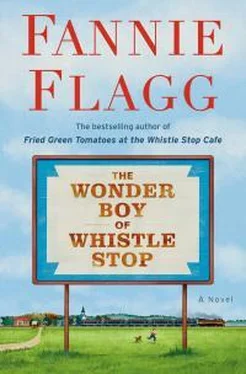

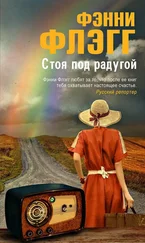


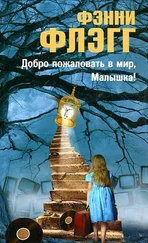
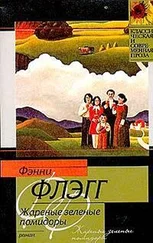
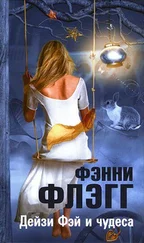
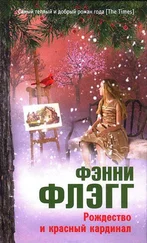

![Фэнни Флэгг - Дейзи Фэй и чудеса [litres]](/books/396999/fenni-flegg-dejzi-fej-i-chudesa-litres-thumb.webp)
![Фэнни Флэгг - Рай где-то рядом [litres]](/books/429696/fenni-flegg-raj-gde-to-ryadom-litres-thumb.webp)
